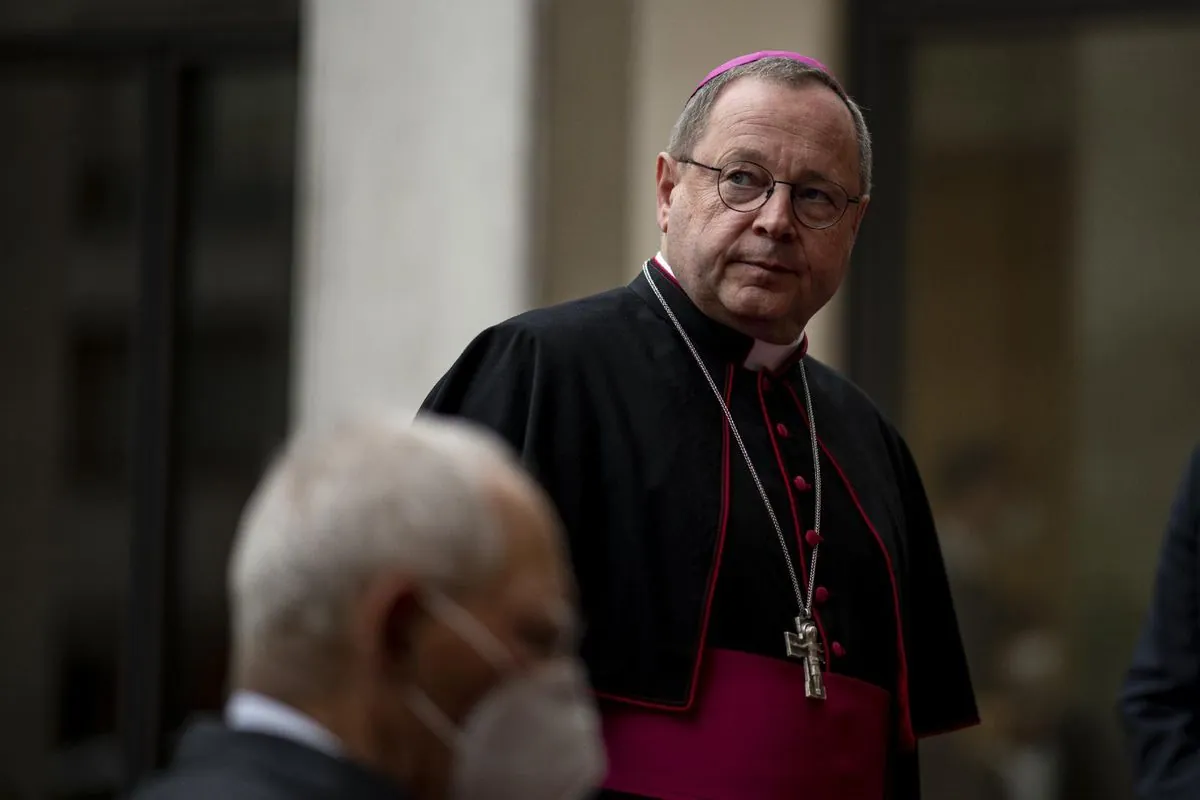German Catholic Leader Urges Rejection of AfD in Upcoming State Elections
Bishop Georg Batzing calls AfD "un-Christian" ahead of Saxony and Thuringia votes. Polls show far-right party leading, raising concerns about democratic values in former East German states.

In a significant political intervention, Bishop Georg Batzing, Germany's top Catholic clergyman, has called on voters to reject the Alternative for Germany (AfD) party in the upcoming state elections in Saxony and Thuringia, scheduled for September 1, 2024. The bishop's statement highlights the growing tension between religious institutions and the far-right political movement in Germany.
Bishop Batzing, who chairs the German Bishops' Conference, an assembly dating back to 1848, declared that supporting the AfD would be "un-Christian." He asserted that the party, particularly in Thuringia, aims to "overthrow our democratic, liberal system." This stance reflects the ongoing conflict between the Church and the AfD, which has intensified since the 2015 refugee crisis.

The religious landscape in eastern Germany, where these elections are taking place, is unique. Often referred to as "the most Godless place on Earth," the region has a high proportion of atheists, a legacy attributed to four decades of communist rule from 1949 to 1990. Interestingly, this area is also the birthplace of the Protestant Reformation, with Martin Luther publishing his famous 95 Theses in Wittenberg, Saxony, in 1517.
Despite the region's secular reputation, recent polls indicate strong support for the AfD. In Saxony, the party leads with 32% of projected votes, narrowly ahead of the Christian Democratic Union (CDU) at 30%. Similarly, in Thuringia, the AfD is polling at 30%, with the CDU at 20%. These figures suggest a potential first-time victory for the AfD in high-level elections.
Germany's political landscape is further complicated by its unique approach to monitoring extremism. The Federal Office for the Protection of the Constitution (BfV), Germany's domestic intelligence agency, actively observes political parties and movements. This system, designed as an "early warning" mechanism to prevent threats to democracy, has classified local AfD chapters in both Saxony and Thuringia as "verifiably Right-wing extremist."
The AfD's leadership in Thuringia has been particularly controversial. Bjorn Hocke, a former history teacher leading the party in the state, has faced legal consequences for using banned Nazi slogans in campaign speeches. This has intensified scrutiny of the party and its compatibility with Germany's post-war democratic values.
As the elections approach, the clash between traditional religious values, represented by Bishop Batzing, and the rising populist sentiment embodied by the AfD, underscores the complex political dynamics in contemporary Germany. The outcome of these state elections may have significant implications for the country's political future and its ongoing struggle with far-right ideologies.
"Right-wing extremists like the AfD in Thuringia are not electable for Christians"
This electoral contest takes place against the backdrop of Germany's unique political system, which includes a 5% threshold for parties to enter parliament, a measure designed to prevent the rise of extremist parties. As voters in Saxony and Thuringia prepare to cast their ballots, the interplay between historical legacies, religious influences, and contemporary political movements continues to shape the nation's democratic discourse.


































